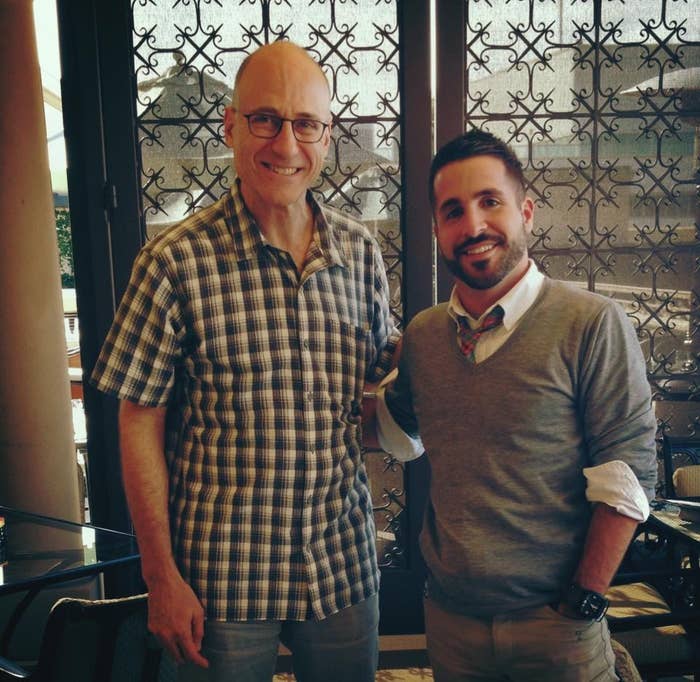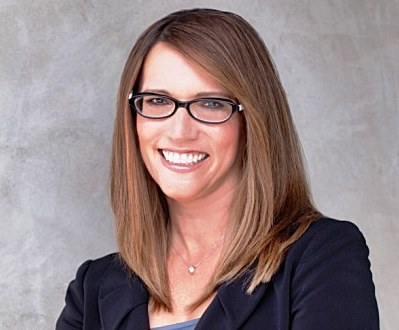
Michael LaCour, the UCLA graduate student who has been accused of making up data and lying about how his research was funded, has published a much-anticipated response to these allegations.
On Friday LaCour sent BuzzFeed News and other outlets a 23-page document outlining how he believes his critics went wrong. But he also admitted to lying about how his study was funded, writing: "I also take full responsibility and apologize for misrepresenting survey incentives and funding."
LaCour's study — which reported in the journal Science that a 20-minute conversation with a gay person could change California voters' minds on same-sex marriage — was retracted last week by LaCour's co-author, Columbia University's Donald Green. On Thursday, Science issued an official retraction.
Months after the study made headlines, independent scientists scrutinized the data and found that it was, statistically, too good to be true. This spurred a UCLA investigation that is still pending, university representatives told BuzzFeed News.
In his response, LaCour admitted to destroying the study's raw data, but claims that he did so "in the interest of institutional requirements" to protect the privacy of the study participants.
Surprisingly, LaCour's response also links to a letter he received from UCLA's ethical review board in January telling him to notify Science that he hadn't applied for study approval until more than a year after starting the work. Several UCLA faculty also received this letter.
LaCour has not responded to requests to discuss his statement in more detail. BuzzFeed News reached out to the scientists — David Broockman, Joshua Kalla, and Peter Aronow — who first published the irregularities in LaCour's work. They responded by email:
"In our view, none of the claims made in LaCour's response meaningfully address the concerns articulated in our report, Professor Green's retraction request, or the Science retraction."
After two weeks of dissecting LaCour and his alleged sins, the scientific community’s focus is shifting to the more established scientists who advised him.
"When things fall apart, everybody's pointing a finger at everybody else," Nicholas Steneck, director of the Research Ethics Program at the University of Michigan, told BuzzFeed News. "I really think this is a breakdown of the responsibility of the senior collaborator — who should know better in a collaboration like this — and the graduate student's advisor."
With funding in decline, science is a hypercompetitive field, with many times more graduate trainees than permanent academic jobs to fill. And publications — particularly those in top-tier journals such as Science — are a hugely important metric of success.
For a graduate student, splashy results can lead to grant money, fame, and collaborations with more well-known colleagues. And for senior scientists, too, being attached to big findings can lead to more money, and help them cement their place at the top.
This combination of incentives can lead to an array of problems. Outright fraud is fairly rare, but misconduct, bias, and unintentional oversights are not. And that's true for junior and senior researchers alike.
LaCour's co-author, Donald Green, missed several red flags, some say. As BuzzFeed News reported last week, the three organizations that LaCour thanked for "research funding" in the study's acknowledgments denied ever giving him a dollar. And other funders listed under a "Grants" heading on various versions of LaCour's CV have also denied any involvement. In his response on Friday, LaCour admitted to lying about some of the grants.
Green should have confirmed the source of funds, critics say. "Not checking on [the] funding source is irresponsible, particularly if you are going to put your name on a paper reporting the research," Steneck said. "You have to know the funding sources. How else can you report conflicts of interest?"
Political Science Rumors, a popular, anonymous, and often caustic forum for political scientists, is full of postings criticizing Green, a titan of the field, who admitted that he did not review the raw data before publication.
"It's despicable how bigshot profs with long nose hairs can put their name on a paper with no input as if they were a Hollywood actor endorsing a beer," wrote a commenter dubbed Melinda by the forum's random-name generator. "Exactly," someone called Todd responded. "He was more than willing to take credit for the study when he thought it would advance his reputation, but now he can disown it? He can't have it both ways."
Five months ago, posters on the same forum had suggested that the data was "kind of weird," "just not believable," and had effect sizes that were "implausibly large."
In his response on Friday, LaCour claimed that Green saw these forum postings. If that's true, then some say he should have acted on the information. As a commenter dubbed Jayne wrote earlier this week:
It's sad to see DG avoiding much criticism on this one, because while LaCour's crimes are worse, the lack of accountability for Green has bigger implications. There *will* be fraud in this field. There *will* be statistical work done incorrectly."Senior co-authors (and advisors) should be gatekeepers, warding against these problems. In a sense, they are like ratings agencies in the financial crisis. Yes, they have a reputational need to 'get it right', but they can also benefit by looking the other way."Don Green got a piece in Science, and numerous plaudits in exchange for superficial framing contributions to an article, and his name. That is a pretty nice prize for *not* doing due diligence.
Donald Green looks worse in #LaCour response; he saw what was Broockman's original poliscirumors post in Dec but didn't investigate
Green doesn't disagree that he failed as a supervisor. "I am deeply embarrassed that I did not suspect and discover the fabrication of the survey data and grateful to the team of researchers who brought it to my attention," he told the Science of Us.
"Michael said he had hundreds of thousands in grant money, and, yes, in retrospect, I could have asked about that," Green told the New York Times. "But it's a delicate matter to ask another scholar the exact method through which they're paying for their work."
Earlier Green told the blog Retraction Watch that he had not looked at the raw data because he did not have the go-ahead from his school's Institutional Review Board, which must approve any research using human subjects. "Looking back, the failure to verify the original [data] was a serious mistake," Green said.
Indeed, by submitting the study to Science, Green seems to have violated the journal's authorship policy, which states: "The senior author from each group is required to have examined the raw data their group has produced."

Lynn Vavreck, LaCour's graduate adviser at UCLA, is also taking hits.
One thread on Political Science Rumors — titled "Lynn Vavreck is skating on this one huh?" — has eight pages of comments, mostly vitriolic.
But some scientists say that Vavreck isn't responsible for the data, as she wasn't an author on the study.
"Advisors advise. They don't necessarily check everything the student's doing," Gary King, a political scientist at Harvard, told BuzzFeed News. "This is not the kind of thing where anybody needed to tell him this is not a good idea to make up data."
Still, it's odd that no one raised eyebrows at a graduate student who was claiming to have received hundreds of thousands of dollars in grant money, Mark Major, associate director of the McCourtney Institute for Democracy at Pennsylvania State University, told BuzzFeed News.
"There should have been a red flag raised that a graduate student was able to acquire all of this money," Major said. And yet, at the same time, it is a strange thing to lie about, he added. "I've never questioned somebody. If they told me they won a grant, I don't call up the foundation and tell them to prove it."
Academic institutions, too, undoubtedly played a role in this scandal. As sociologist Kieran Healy of Duke University noted, universities benefit from highly publicized studies:
As I said earlier—the logic of scandal is contamination. Everyone's running now, but don't tell me no-one at UCLA knew something was up.
@asociologist Universities love money. If you are bringing in three quarters of a million in grants A LOT of people know about it.
When contacted by BuzzFeed News, Vavreck wrote by email that the UCLA Political Science department is "taking the allegations seriously" and "will have more to say" once the university's investigation is done. A UCLA representative said the school cannot comment on pending cases due to student privacy laws.
When asked about LaCour's latest response, Green told BuzzFeed News that he is not commenting further on the case until the UCLA investigation is complete.
Yet other researchers point out that Vavreck and Green swiftly and decisively acted to correct the scientific record. As Uri Simonsohn, a social scientist at the University of Pennsylvania, tweeted: "I admired Don Green before. Now I admire him more."
Even if senior researchers micromanage their advisee's every step, deception can happen. And some say that worrying too much about this possibility will hinder scientific progress.
"Science is often bitterly competitive but it depends on honesty. It is not set up to weed out liars," Healy wrote in a blog post about the scandal. "Consider having to check not just the quality of your grad students' work, but whether they were lying to you about [their] data. Much of what we do would become simply impossible."
This post has been updated with a response from David Broockman, Joshua Kalla, and Peter Aronow, and with the information about the IRB letter.
This post has been updated with Donald Green's response.
